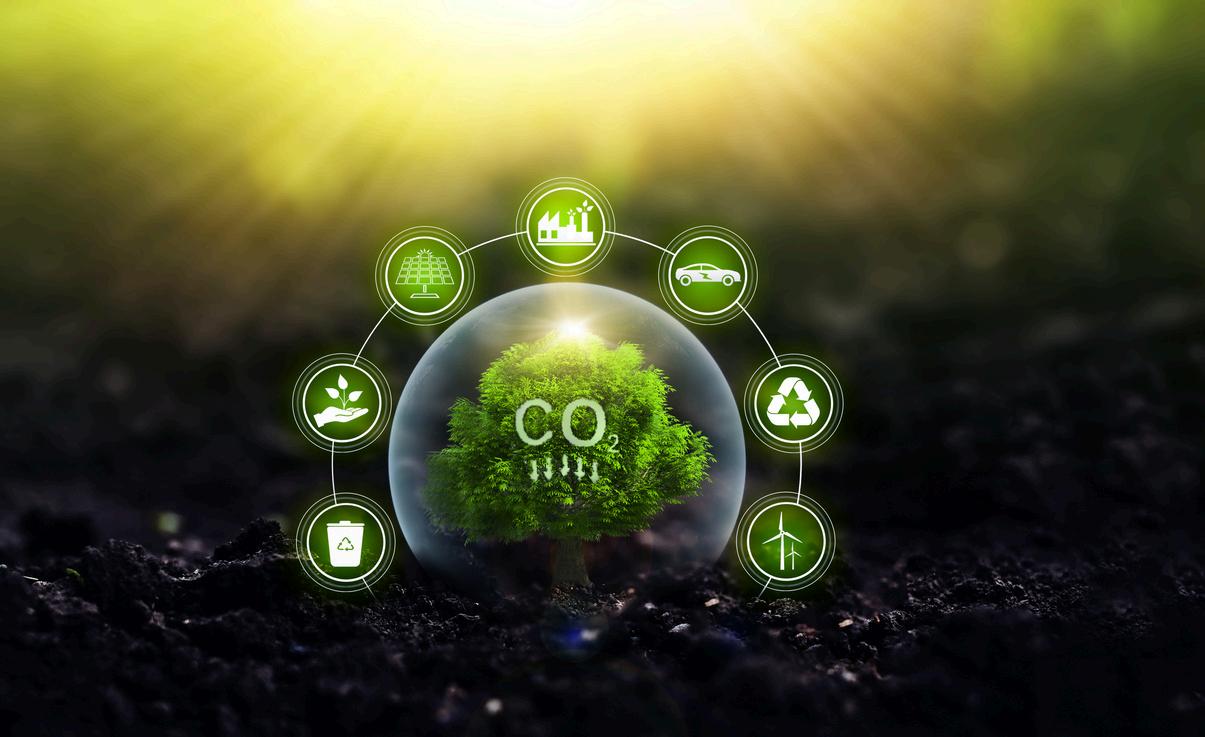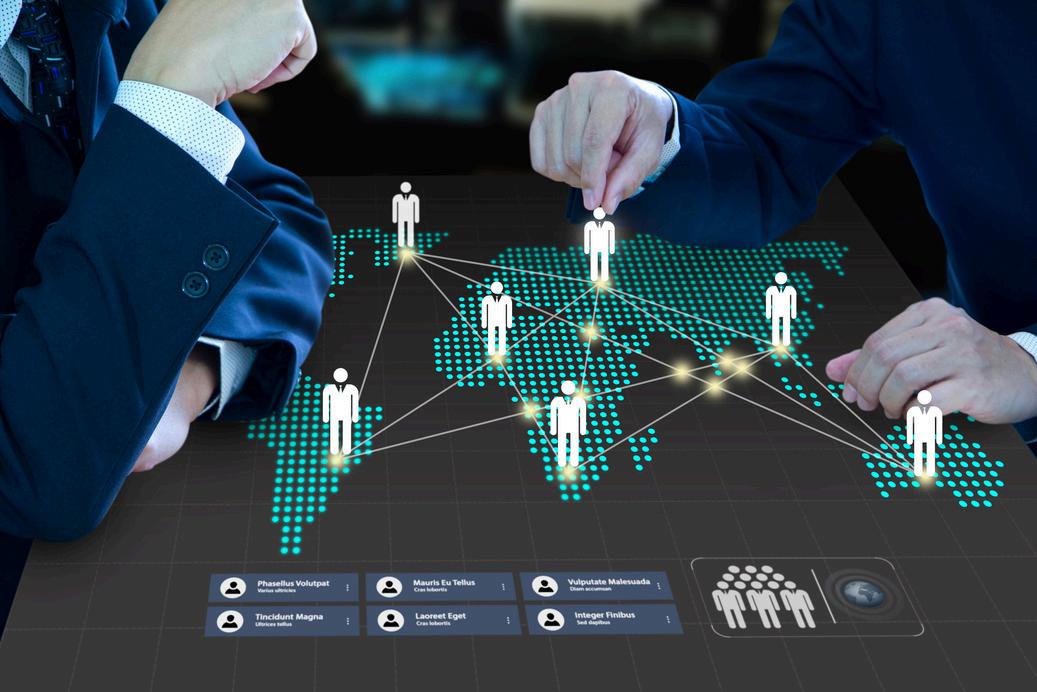Pioneering Sustainability: A Strategic Shift in Corporate Leadership

Navigating the Path to Net-Zero and Enhancing LongTerm Business Resilience


Navigating the Path to Net-Zero and Enhancing LongTerm Business Resilience
The Path to Net-Zero: A Catalyst for Economic Transformation
Sustainability as a Strategic Imperative
Mobilizing the “Moderate Middle” for Collective Impact
From Awareness to Action: Sustaining Long-Term Growth
StrategicPrioritiesandChallengesofCXOsandBusiness Leaders
Integrating Sustainability into Core Business Operations
Fostering Organizational Commitment to Sustainability
Leveraging Technology for Sustainable Innovation
Broadening the Scope of Sustainability Efforts
Addressing Escalating ESG Expectations
Balancing Short-Term and Long-Term Priorities
Cultivating a Culture of Alignment and Innovation
Sustainability:ADefiningMandatefortheModern Enterprise
The Strategic Imperative of Climate Action
Democratizing Sustainability: Bridging Accessibility Gaps
Scaling Renewable Energy and Next-Generation Technologies
Holistic Sustainability in Supply Chains
Concrete Commitments to Carbon Reduction
Strategic Takeaways for Business Leaders
The Path Ahead: Shaping a Sustainable Future
RecommendationsforaSustainableFuture
Contextual Imperative: A Call to Action
Strategic Pathways for Sustainability
Leverage Core Competencies
Broaden the Scope of Impact Pathways
Foster Collaboration Across Ecosystems
Building the Business Case for Sustainability
Methodology
This inaugural report from Globalbiz Outlook highlights the pivotal efforts of business leaders in addressing sustainability and climate change. Early yet significant, indicators reveal that executives are recognizing the immense business opportunities inherent in transitioning to a low-emissions economy.
Achieving net-zero emissions will fundamentally reshape nearly every facet of the global economy. The velocity and magnitude of this transformation have surged in recent years, even as efforts remain insufficient to avert the most severe impacts of climate change. Executives are increasingly witnessing this transformation firsthand, with many companies identifying direct financial and operational advantages stemming from their climate initiatives A growing number of organizations view sustainability as a core component of their business strategy, leading to an increase in sustainability investments and aligning growth trajectories with climate action.


Corporate climate action appears to be entering a transformative phase, where sustainability strategies extend beyond compliance, risk mitigation, and stakeholder engagement. Sustainability is now emerging as a powerful engine for value creation, a competitive advantage, and a driver of innovation and business transformation This shift is most evident among organizations adopting a suite of “needle-moving actions” designed to deliver meaningful impact both internally and externally. Such proactive and holistic approaches demonstrate how sustainability can unlock business value and drive innovation.
While industry-leading organizations are spearheading impactful climate initiatives, their efforts alone cannot achieve the sustainable future required. To catalyze the transition, companies in the "moderate middle" those taking incremental yet high-impact actions must broaden and deepen their sustainability endeavors. Encouragingly, these organizations are well-positioned for action. Globalbiz Outlook’s 2024 survey reveals that many businesses acknowledge the present and future implications of climate change and have already embarked on essential sustainability measures. This “moderate middle” represents an untapped force; if galvanized, it could create a tipping point in corporate climate action and drive substantial progress at scale


Each organization's sustainability journey is distinct, often marked by complexities and challenges. Yet, the unwavering commitment of business leaders to advancing sustainability is more evident than ever This transition from mere awareness to meaningful action underscores a profound understanding of the enduring benefits of sustainability investments not only for environmental preservation but also for reinforcing business resilience and fostering sustainable growth.
In today’s business environment, leaders face increasingly complex challenges as they strive to align strategic priorities with evolving market demands, stakeholder expectations, and sustainability goals. The roles of CXOs and other business executives have expanded to include a multifaceted approach toward balancing profitability, operational efficiency, innovation, and societal impact. Below is an analysis of the key strategic priorities and challenges confronting these leaders.
A critical priority for modern executives is the integration of sustainability into the financial and operational core of their organizations. Sustainability is no longer viewed as a peripheral initiative but as a cornerstone of strategic advantage. Leaders emphasize the need to align sustainability with financial objectives and business processes to build resilience and maintain competitiveness. This integration, however, presents challenges. Achieving harmony between sustainability initiatives and traditional business objectives often leads to friction within organizations Executives must navigate these internal dilemmas while ensuring that long-term environmental goals are not overshadowed by short-term performance pressures.


Embedding sustainability into an organization’s DNA requires firm leadership commitment When sustainability becomes a core part of the overall strategy, it can drive transformational change Clear, unwavering support from top executives ensures that sustainability is not treated as a separate agenda but as a fundamental element of business operations. Nonetheless, maintaining focus amid competing demands and external distractions remains a significant challenge. Leaders must demonstrate resilience in upholding sustainability commitments while continuously inspiring their teams to stay aligned with these objectives.
The rapid advancement of technology offers leaders new opportunities to drive sustainability and innovation Businesses are increasingly exploring the role of technology in enabling efficiency, enhancing decisionmaking, and solving environmental challenges. From data analytics to AI-powered tools, technology serves as a powerful enabler for organizations seeking to achieve sustainability goals.
Despite these opportunities, the integration of new technologies comes with complexities. Scaling innovative solutions while ensuring their alignment with broader business strategies requires careful planning, significant investment, and cross-functional collaboration


The concept of sustainability has evolved beyond environmental initiatives to encompass broader social and governance priorities. Efforts now include addressing societal issues such as hunger, promoting employee safety, and advancing community wellness Leaders increasingly recognize that these expanded initiatives create value not only for shareholders but also for employees, customers, and society at large. However, managing such a broad scope of initiatives can be resource-intensive. Leaders must prioritize effectively, balancing the urgency of different goals while ensuring alignment with the organization's long-term vision.
Stakeholders are placing greater emphasis on environmental, social, and governance (ESG) performance. Companies are expected to provide transparent and measurable evidence of their ESG contributions, particularly in how they support the sustainability goals of their stakeholders
This growing emphasis on ESG introduces challenges for leaders, who must navigate heightened scrutiny and deliver consistent accountability. Developing comprehensive reporting frameworks, tracking progress against ambitious targets, and maintaining open communication with stakeholders are essential but resource-intensive tasks.

One of the most significant challenges for executives is striking the right balance between short-term business imperatives and long-term strategic priorities. While financial performance often demands immediate attention, sustainability and innovation require a forwardlooking perspective that considers broader societal and environmental impacts
The interplay of these priorities creates inherent tensions, requiring leaders to make difficult trade-offs. Clear communication and collaborative decision-making are essential to managing these tensions effectively and ensuring that the organization remains on a stable growth trajectory.


For any strategic initiative to succeed, cultural alignment across the organization is vital. Leaders recognize the importance of fostering a unified vision that aligns employees, partners, and stakeholders. A culture that promotes innovation, accountability, and collaboration is key to driving meaningful progress
Resistance to change, however, can hinder these efforts
Leaders must invest in robust communication, leadership development, and employee engagement to build trust and commitment. Additionally, aligning incentives with strategic objectives ensures that all members of the organization work toward common goals.
The priorities and challenges faced by CXOs and business leaders reflect the complexity of today’s global business environment. From integrating sustainability into core strategies to leveraging technology for innovation, leaders are navigating a diverse set of responsibilities that demand resilience, adaptability, and vision.
Balancing profitability with sustainability, addressing heightened ESG expectations, and cultivating a culture of alignment are essential for long-term success. By embracing these challenges and remaining committed to their strategic goals, leaders can position their organizations as resilient, responsible, and forward-thinking entities that thrive in a rapidly evolving landscape.
In today’s dynamic global marketplace, sustainability has transcended its status as a mere corporate responsibility to become a strategic imperative for businesses. Issues like climate change, resource efficiency, and technological innovation are now pivotal drivers of organizational success. This report examines the collective perspectives and strategies of CXOs and business leaders as they champion sustainability to achieve both corporate resilience and societal progress.
Climate change is no longer a peripheral concern but a formidable macroeconomic force influencing industry trajectories and consumer behavior. Proactive integration of sustainability into business strategies is essential to remain competitive and uncover new avenues for growth. As one leader emphasized, robust commitments to climate action foster operational efficiency, enhance customer trust, and create untapped opportunities. By aligning organizational goals with the climate-conscious priorities of consumers, businesses can secure their resilience while unlocking innovative market potential


Sustainability must evolve beyond exclusivity and become universally accessible Leaders have highlighted the critical need for scalable, cost-efficient solutions to democratize sustainability initiatives The sentiment is clear: eco-conscious practices should be affordable and actionable for all socioeconomic segments, not just a privileged few.
Organizations are encouraged to adopt process optimization and technological advancements to deliver eco-friendly solutions that resonate with inclusivity. By positioning sustainability as an attainable goal, businesses can foster wider adoption and collective impact.
Attaining net-zero objectives demands bold investments in renewable energy and cutting-edge climate technologies Business leaders have called for an accelerated deployment of renewable solutions, especially in emerging markets where transformative impacts are most needed.
Pioneering investments in areas like vertical farming, hydrogen-based energy systems, and carbon capture technologies exemplify forward-thinking strategies. Through innovation hubs and venture capital funding, organizations can drive advancements that not only mitigate environmental risks but also establish technological leadership in competitive markets


Sustainability efforts must extend beyond internal operations to encompass the entire value chain. From reducing carbon footprints to mitigating deforestation risks and enhancing water stewardship, a holistic approach is paramount
One leader spotlighted initiatives such as antibiotic-free livestock farming and deforestation-free supply chains as impactful actions. Companies are urged to rigorously assess their supply chain practices and integrate sustainable solutions that align with their environmental commitments.
Definitive and measurable commitments to carbon reduction are central to impactful sustainability strategies. Organizations are increasingly adopting science-based targets to ensure transparency and accountability. For instance, a notable leader shared their company’s pledge to cut Scope 1 and Scope 2 carbon emissions by 50% by 2030, achieving this milestone four years ahead of schedule By embedding carbon reduction goals into their long-term strategies, businesses can balance profitability with environmental responsibility, while simultaneously enhancing stakeholder trust.

The insights shared by CXOs and business leaders provide actionable strategies to embed sustainability as a cornerstone of business success:
Prioritize Sustainability as a Core Business Strategy: Treat environmental stewardship as an integral driver of growth and resilience.
Democratize Sustainable Solutions: Invest in scalable and affordable ecofriendly practices to drive inclusivity and impact.
Champion Innovation in Climate Technologies: Allocate resources toward developing transformative technologies for decarbonization and renewable energy solutions.
Ensure Sustainability Across the Value Chain: Optimize supply chain processes to mitigate environmental risks and enhance resource efficiency. Set Measurable and Accountable Targets: Commit to science-based carbon reduction goals to drive measurable progress and financial sustainability.
Sustainability is no longer an optional consideration but an indispensable element of modern business strategy. By embracing innovative solutions and addressing environmental challenges, CXOs and business leaders can position their organizations as trailblazers in sustainable development. Globalbiz Outlook believes the journey toward a sustainable future requires collective commitment and decisive action. Companies that lead this transformation today will define the market opportunities and societal advancements of tomorrow.
According to the National Oceanic and Atmospheric Administration (NOAA), "2023 was the world’s warmest year on record, by far" (January 2024) In light of this stark reality and the evident consequences of climate change, businesses must intensify their sustainability efforts Immediate and substantial reductions in carbon emissions, fostering resilience in an increasingly warming world, and ensuring that the energy transition's impact does not disproportionately affect the most vulnerable are essential priorities. Beyond mitigating risks, these sustainability efforts can unlock significant business advantages, particularly for companies in the "moderate middle," which hold the potential to shift the balance in favor of both profitability and planetary health.


Organizations must harness their intrinsic strengths to contribute effectively to a sustainable future Businesses positioned in the “business of sustainability” should focus on innovating and delivering low-emissions products and services, such as solar technologies, electric vehicles, regenerative agriculture, and carbon sequestration solutions. Conversely, entities that excel as “sustainable businesses” can integrate sustainability into their operations and utilize their influence over supply chains and policymaking to foster systemic change. Both roles are vital, and businesses in the "moderate middle" must enhance their efforts within their current spheres of expertise

Corporate sustainability efforts must be far-reaching and impactful. By considering a comprehensive array of "needle-moving actions," organizations can amplify their influence across various stakeholder groups, including customers, employees, suppliers, policymakers, nongovernmental organizations (NGOs), and local communities. Many companies may discover that their capacity to drive meaningful change extends beyond initial expectations.

Achieving transformative sustainability outcomes requires collaboration that transcends organizational boundaries. Partnering with diverse stakeholders and even competitors can magnify the impact of sustainability initiatives. Collaborative supply chain engagement can result in industry-wide advancements and catalyze innovation. For instance, working with suppliers to achieve sustainability benchmarks can elevate product performance. Similarly, partnerships with regulatory bodies can help shape progressive policies, while alliances with competitors can establish industry standards and best practices
Organizations must fully explore the tangible and intangible benefits that sustainability efforts can deliver According to Globalbiz Outlook's 2024 CxO Sustainability Report, many executives recognize an array of advantages arising from sustainability initiatives. To maintain a competitive edge in an evolving regulatory and market landscape, leaders must integrate sustainability as a cornerstone of their business strategies. Companies that proactively adopt innovative, high-impact actions will be strategically positioned to thrive in the emerging low-carbon economy. By elevating their ambitions and embracing sustainability at the core of their operations, organizations can simultaneously secure economic resilience and contribute to a healthier planet

The insights for this report are derived from a comprehensive survey conducted by Globalbiz Outlook The survey engaged 50 C-level executives through a double-blind methodology, ensuring both impartiality and confidentiality Data collection was conducted during November and December 2024, with representation from 7 countries across four key regions: Europe (46%), Asia-Pacific (28%), and North America (26%)
The survey covered a wide range of industries, including Consumer (21%), Energy, Resources & Industrials (22%), Financial Services (18%), Life Sciences & Healthcare (19%), and Technology, Media & Telecommunications (20%). Respondents represented organizations with revenues ranging from $500M to over $10B, providing diverse perspectives across varying organizational scales.
To enhance the findings, select one-on-one interviews with global industry leaders were conducted. These interviews offered qualitative insights into sustainability trends, challenges, and opportunities, complementing the quantitative data
The robust methodology ensured the insights reflect a comprehensive and unbiased view of sustainability strategies across industries and geographies, making this report a valuable resource for business leaders worldwide.

Reference & Guide:
GlobalBiz Outlook is the next-generation Digital Community covering all industries, emerging technologies, tech solutions providers, and innovators connecting the world's largest business and executive leaders community. Global Biz Outlook also focuses on industry news and analysis, interviews, product & technology videos, the Leadership Podcast series, white papers, and reports. https://globalbizoutlook.com/energy/ https://www.unido.org/sites
SoniaSaroj
Sr. Analyst, Business Development & Industry Intelligence Office: +1-847-852-4574
E-mail: sonia.saroj@globalbizoutlook.com
JulieEvans
Sr. Business Analyst Office: +1-847-852-4574 Cell: +919604384870
E-mail: julie.evans@globalbizoutlook.com/
SugandhaSharma Editor-in-Chief Office: +1-847-852-4574
